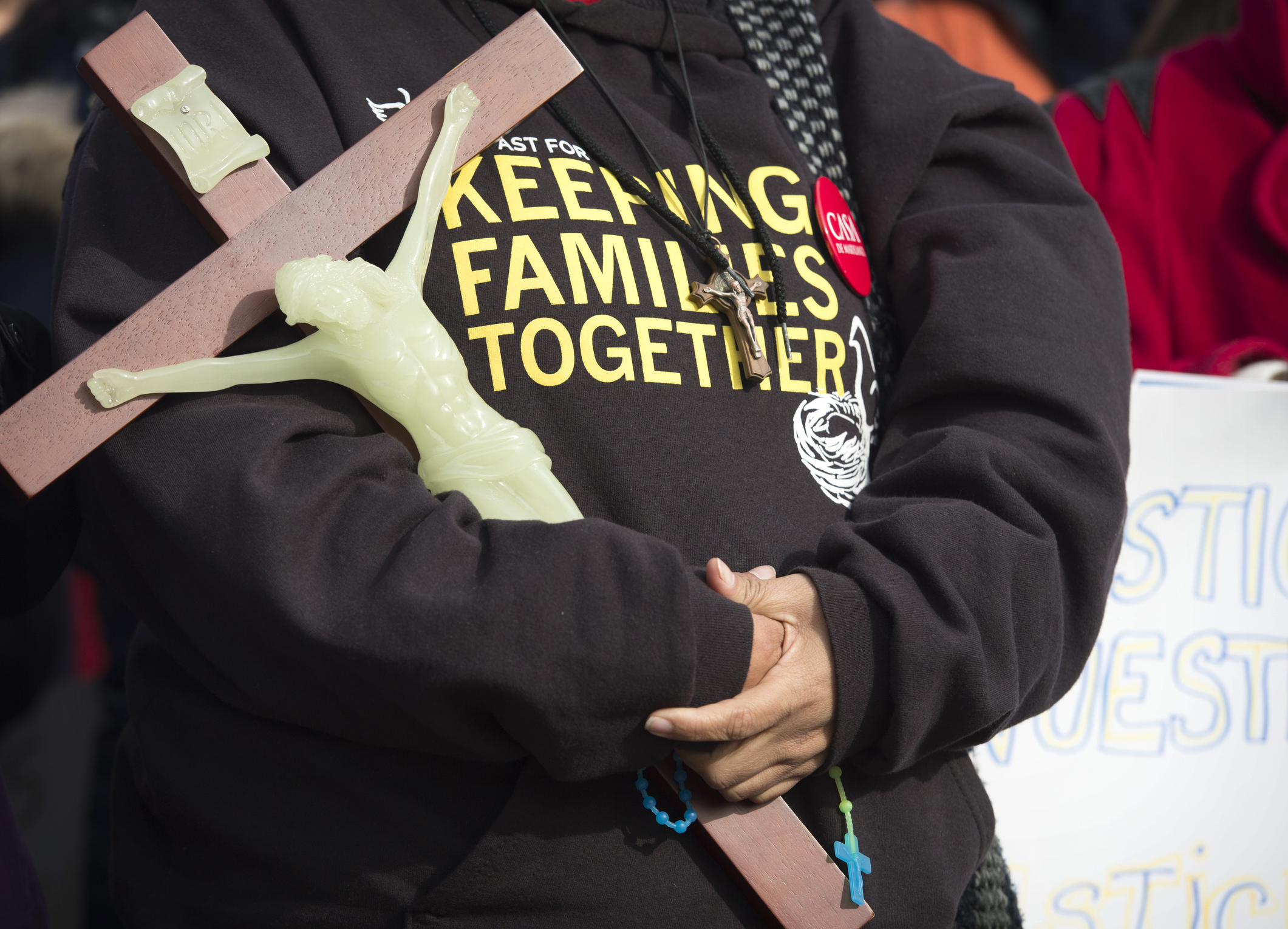Understanding and responding to "anti-sanctuary city" legislation
Produced for the 85th Texas Legislative session (2017)
The state of Texas has changed the relationship of local law enforcement with the Immigration Control Enforcement agency. The bishops of Texas oppose the legislation, S.B. 4, known colloquially as the "anti-sanctuary city" bill, and encourage Catholics throughout Texas to learn more about their own Fourth Amendment rights and how they can make their communities safer and more welcoming to immigrants.
Pray for our police, who sacrifice to keep us safe; for migrants, who seek a better life for their families; for our leaders, who seek the common good; and for ourselves, that we all may be worthy of the promises of Christ. You can also:
Understand the law
S.B. 4 changes the relationship between ICE (Immigration and Customs Enforcement) and local police in two ways: first, police must comply with ICE requests to transfer local prisoners to ICE custody. If a sheriff or police chief releases an arrested person when ICE requests detention, they will be removed from office and punished with a $4,000 fine and/or 1 year in jail. Second, local governments must allow their police and attorneys to:
- inquire into the legal status of a person who is arrested or detained,
- send information about legal status to ICE,
- help ICE enforce immigration law, and
- permit ICE to enter local jails.
Police are allowed, for example, to ask for the legal status of someone stopped for a traffic violation. If a local government prohibits police and attorneys from carrying out these four actions, the government will be punished with a $25,000 fine per day. In addition, the leaders will be removed from office.
Exclusions. S.B. 4 does not apply to churches, hospitals, school districts, charter schools, public health departments, or community centers serving the mentally ill. In other words, employees of these institutions — including off-duty police — can be prohibited from carrying out the four actions above.
Second, local governments can prohibit on-duty police from enforcing immigration law in a church.
Last, police can ask witnesses or victims to a crime about their legal status only if the investigation requires it, or to provide information about the S Visa Program, which offers 250 visas each year to migrants who help police investigate criminal organizations.

